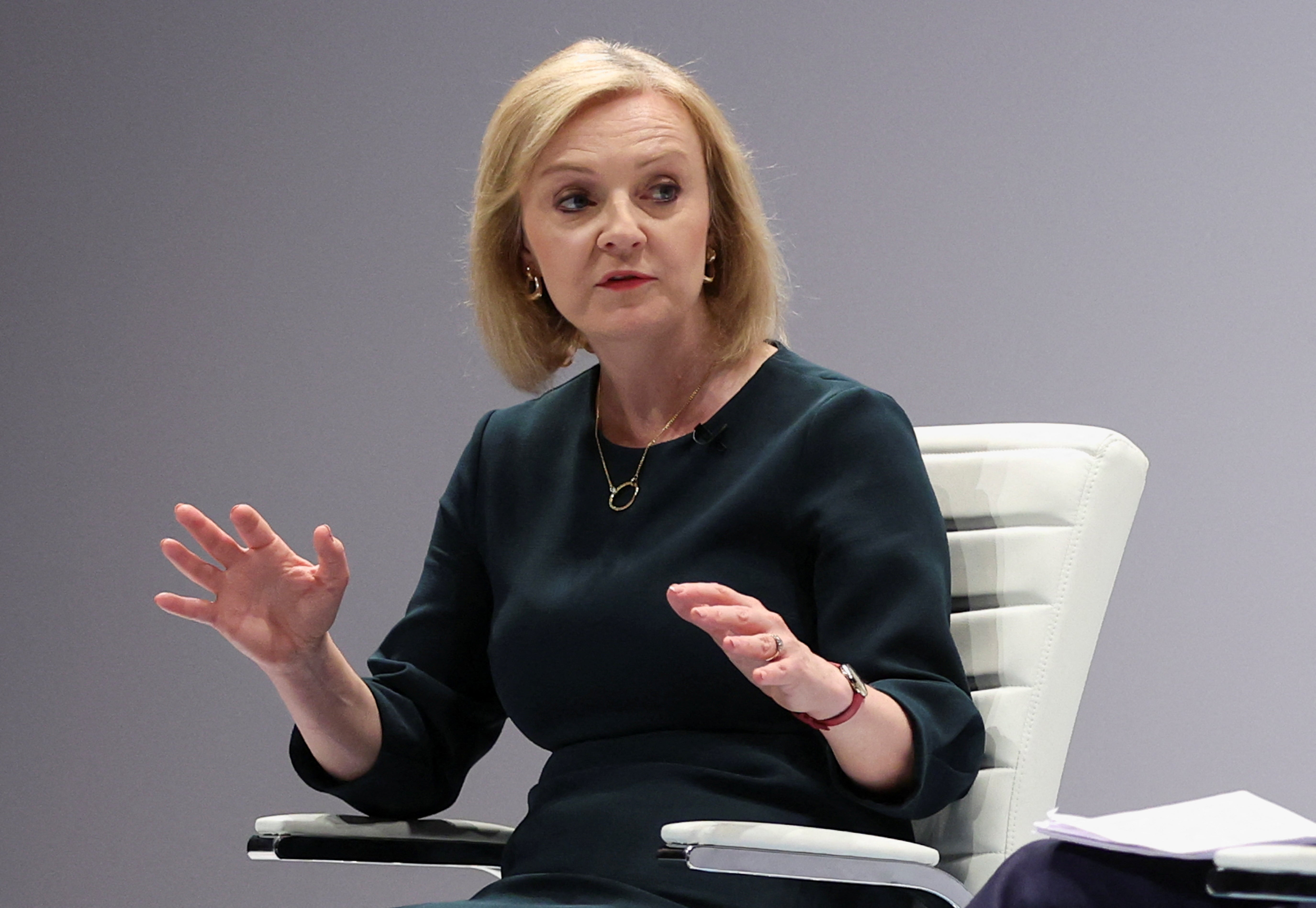What to make of the ministerial career of Liz Truss?
Indeed, the favourite to enter Downing Street has apparently ‘risen without trace’, writes Sean O’Grady


For a politician who is constantly banging on about her ability to “deliver”, Liz Truss has remarkably little to show for her 10 years as a minister, with eight of those at the top table under three prime ministers. She is the longest serving member of the current cabinet.
Few could name any of her jobs in government, apart from her present role as foreign secretary, and fewer still could identify any action she took that noticeably changed the lives of the British people. Indeed, in an old satirical phrase, she has apparently “risen without trace”, such has been her phantom-like ascent to high – and likely soon the highest – elected office.
However, as foreign secretary, it is probably fair to say she put more effort into the release of Nazanin Zaghari-Ratcliffe than either of her immediate predecessors, Dominic Raab and Boris Johnson (the latter of whom actually made matters worse for Nazanin with some foolish remarks about the reason for her presence in Iran). Truss is also pushing the Northern Ireland Protocol Bill through parliament, though it’s not something to be especially proud of and could have been done by any halfway competent frontbencher.
Similarly, her support for Ukraine wasn’t unusual in any party. Against that was her misguided enthusiasm for random Brits to go and fight in Ukraine if they wanted to, something she was soon slapped down for by the Ministry of Defence and on which she subsequently backtracked, saying it wasn’t what it had seemed. For the record, here is the exchange with Sophie Raworth on the BBC on Sunday 27 February 2022:
Raworth: “So you support Brits going to Ukraine to fight?”
Truss: “Absolutely, if that’s what they want to do.”
She is proud of the countless trade deals she secured in her previous role as international trade secretary, but most of them were “cut and paste” versions of previous EU deals, and with comparatively small economies, such as Kenya. The deal with Japan was more bespoke, and important, but also drew on proposals the Japanese had agreed with Brussels. It is, as Truss claims, a “UK-shaped” deal, but the differences are relatively minor and trivial in terms of overall GDP.
The Australian and New Zealand deals are more special, but such was her anxiety to get anything signed that they may prove damaging to British agriculture in the longer term (there’s a 15-year fuse on food imports). Joining the Pacific trade partnership and concluding a trade deal with India are more promising signs, and she may be given some credit for those, both in her present and her previous jobs.
And that’s about it, on the positive side. In most of her roles, her period in office was characterised by relative inactivity punctuated by occasional embarrassment and moments of strangeness. Her “cheese” speech, for example, given when she was secretary for the environment, food and rural affairs, remains a difficult watch. But it was not as harmful as her decision to vote against plain packaging for cigarettes, or her long-term support for domestic log-burners, poking fun at “Michael Stove” and his plans to get rid of them.
She also banned “solar farms” in the countryside, a lost opportunity that might have helped a little with the current energy crisis, reducing fossil-fuel use in high summer so that more was available in the dark winter months.
Her short time (11 months) as lord chancellor and minister for justice was especially undistinguished. She failed to defend the judiciary, against her oath of office, when the Daily Mail lambasted independent judges doing their jobs as “enemies of the people” in 2017. Lord Mackay, who held the post under Margaret Thatcher and John Major, remarks now: “I don’t know that Liz Truss had any idea of how legal aid was done, either, when she was lord chancellor and justice secretary... You really need to know something about it.”
The one area of radical reform that could have affected millions of families was in nursery care, which she was responsible for in her first government job at education, under Michael Gove (2012-14). For good or ill, the Truss plan was vetoed by the then deputy prime minister Nick Clegg, a man she might have remembered from her time as a Lib Dem.
The leadership campaign has, though, confirmed Truss’s unrivalled ability to “deliver” an unprecedented quantity of cliches, vacuous slogans, U-turns and “fairytale” economic policies. She’s a poor platform speaker, can’t “deliver” a punchline, and is slow on her feet in debate and in interviews. She has a Johnsonian habit of just stonewalling straightforward questions, and it makes her look no less shifty.
Presentationally she is uninspiring, in contrast to Johnson, but she is just as prone to cakeism and senseless boosterism. Her approach to the coming recession and rampant inflation seems to be to deny their existence and talk about how she’ll “deliver [of course] on the vast opportunities” that Brexit presents.
Apart from that, the record suggests that she actually finds policy quite challenging, and that her long experience as a minister in five varied ministries doesn’t seem to have enhanced her sense of judgement or her ability to, erm, deliver. Maybe No 10 will be the making of her. Perhaps the first thing she should deliver, though, is a let-up in her use of the word “delivery”.
Join our commenting forum
Join thought-provoking conversations, follow other Independent readers and see their replies
Comments
Bookmark popover
Removed from bookmarks